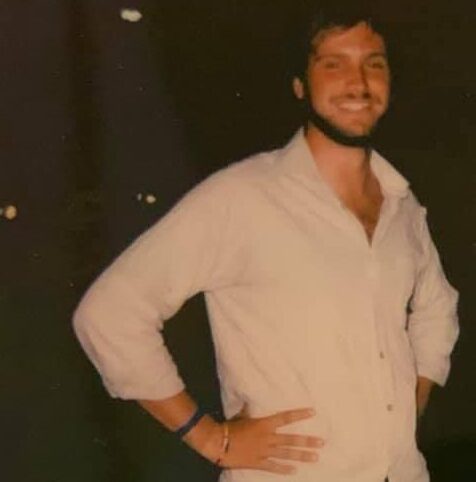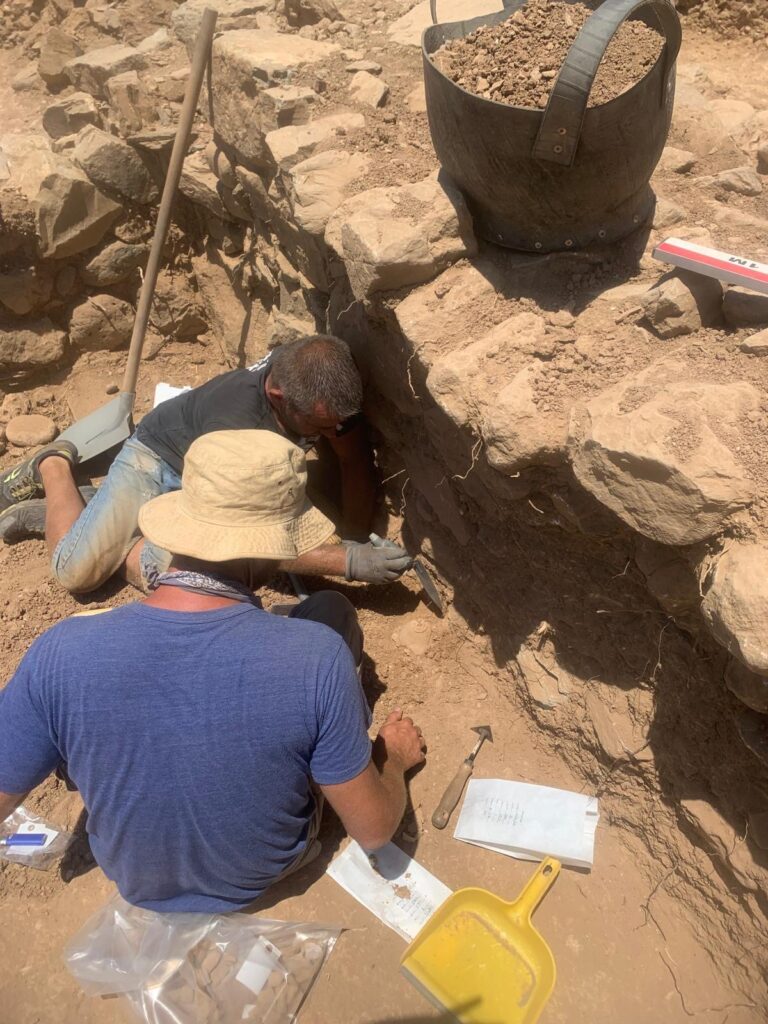Martin Joseph is a New York-born archaeology student at the American University of Rome in Italy. Martin shares in this interview how his passion for archaeology developed into his focus on the technical side of preserving history. With experience on-site across Italy and Greece, Martin has demonstrated his deep interest in evaluating intricate details of human behavior from the past. With a mission to contribute to the innovation of sustainable archaeology and connecting humans to the past, Martin is destined to continue on a meaningful, passion-driven journey.
Where were you born and raised?
I was born in upstate New York outside of Albany in a town called Troy. I grew up and lived there until I was about 20.

What would you say are the communities that you were a part of that influenced much of your upbringing?
In terms of communities, I rode horses competitively. When you’re in the horse world, you kind of become entangled in it. Eventually, we moved to a horse farm in upstate New York. I worked a lot with horses on our farm, so that impacted me quite a bit.
Were there traces of what you’re doing now with archaeology in your childhood or where you were living?
Not necessarily where I was living or in the communities I was in. It was just more something I’ve always had an interest in. Archaeology is definitely more honed in now for me. When I was a little, it was more history.
Who had the greatest influence on who you are today?
I guess this might be a simple answer, but my parents, hands down. They’ve always pushed me to do what I want and so it helped a lot having their support while figuring out I wanted to pursue Archaeology.
Why did you decide to study in Rome?
I’m not super interested in American archaeology and the archaeology of the Americas. I’m much more interested in European and North African archaeology, and I figured—what’s a better place to study than actually in Europe? I also wanted to break out of the American academic system. I like the approach of studying a niche that you are most interested in and becoming an expert in it.
What is your more specific area of interest in the region?
My true passion, what I would really dream of getting into, is Egyptian archaeology. I understand that this is a very lofty goal. For this you have to specialize in it and you have to know the right people so it’s a very difficult field to get into. Otherwise, Bronze Age history is something I’ve worked on. I’ve worked in Crete, which gave me an understanding and a passion for it. So, interconnectivity between cultures, particularly that of Egypt and the Aegean during the Bronze Age, is something I’m leaning towards. And specializations, I think of the more technological side of things, which I’m leaning more into now—so, GIS applications, remote sensing, 3D modeling, and photogrammetry.
You’re on a site right now—can you talk about some of your favorite experiences so far?
Honestly, archaeology is not a very glamorous ordeal. My favorite experiences on this excavation have been working with remote sensing applications. It’s not ground-penetrating radar, but more technical surveying of fields to see what’s underneath to determine if we should excavate there. I’ve been working a lot with that recently, and it’s something newer to me that I wanted to get into, and now I’m actually putting it into practice.
Have you traveled a bit to do different projects or digs?

Yes, my first excavations were in Crete at a Bronze Age site. I spent two full summers—ten-week seasons—there excavating. I’ve traveled to Crete strictly for excavation, and now I’m in northern Italy. I also worked for a year in commercial archaeology in Miami. So, I guess I’ve traveled around for it, though I’d like to do more.
Would you say your goals for the future are to get more into the technical side of archaeology?
I think it’s a really important aspect in the modern age for archaeology. Excavation is very destructive since what you take out, you can’t put back in. So, it’s very important to get as much information as you can before that stage. Thinking about technology, you must think in the future that there’s always going to be something better. In archaeology, it’s the same. We don’t fully excavate a lot of sites because we know that in the future, archaeology will be 10 times better. If you look 100 years in the past, archaeology was blowing things up with dynamite, and 100 years from now, who knows what’s going to be happening? So, it’s important that we use modern technology now to get as much information as we can so that future generations, or future archaeologists, can use their own technology and methods to extract better data than we currently can.
That’s really interesting because it’s mindful and forward thinking.
Totally, totally. Archaeology should be forward-thinking and preservation-minded. That’s definitely more of a new mindset, but it’s becoming widespread, and it’s very important. The best way to preserve something is by keeping it in the ground—it survived thousands of years there. If we don’t touch it, who knows how much longer it could survive?
What is the most meaningful part of archaeology to you?
To me, it’s the connectivity to the past. People in the past were the same as people today, just in a different time. We have the same brains, the same emotions, the same habits—it’s very similar, just with different technology. The world around us has changed, but people have not. Sometimes, you really realize that in the field. Some archaeologists get carried away with interpretations and think of grandiose rituals, but realistically, they were just people. For me, the field experiences that stand out are when I find an artisan’s mistake. For example, I was excavating on Crete, and someone was making a handle for a piece of pottery. They pressed too hard, and you can see their fingerprint still embedded in it, three and a half thousand years later. They probably thought nothing of it, but it’s those human moments that connect us to the past.
